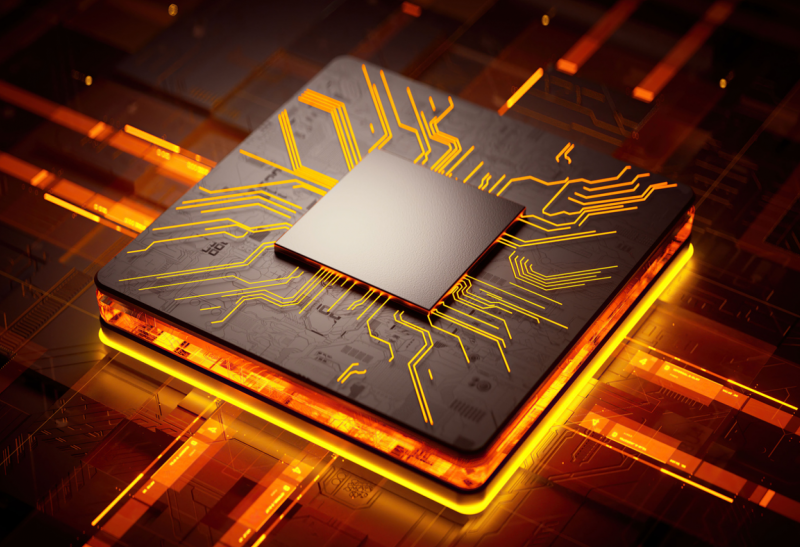SMH, Semiconductors Hit by Trump Taiwan Talk

The “Trump Trade” hasn’t been all positive this week.
Geopolitical risks weighed on capital markets Wednesday after U.S. presidential candidate Donald Trump expressed lukewarm support for defending Taiwan, causing shares of semiconductors to fall.
The VanEck Semiconductor ETF (SMH) fell 4.6% as Taiwan Semiconductor Manufacturing (TSM) receives a 13% allocation in the fund, second only to Nvidia’s 20% weighting. TSM is the world’s largest chipmaker.
Wider tech sector sentiment turned sour after Trump, in an interview with Bloomberg, questioned U.S. support for Taiwan, stating that the island claimed by China should pay for U.S. protection. Trump said that the U.S. was “no different than an insurance company” and that Taiwan “doesn’t give us anything.”
Shares in artificial intelligence chipmaker and top semiconductor ETF holding Nvidia fell nearly 7% and Taiwan's TSM closed 8% lower Wednesday.
The Netherlands' ASML—another top semiconductor ETF holding and the largest equipment supplier to chipmakers—dropped nearly 13%.
The broader tech sector, as measured by the Technology Select Sector SPDR Fund (XLK) was down nearly 4% for the day.
Taiwan, Trade and Semiconductors
U.S. and Taiwanese officials have long claimed that a Chinese invasion of Taiwan would significantly disrupt global trade and high-tech supply chains.
Taiwan's economic significance to the U.S. stems from its role as a major producer of essential technology and a key player in international trade. In the first quarter of 2024, Taiwan Semiconductor Manufacturing recorded a global semiconductor market share of more than 60 percent.
Taiwan is a global leader in semiconductor manufacturing, especially for advanced chips. These chips are essential components in a wide range of products, from consumer electronics to military equipment.
Why Taiwan and Semiconductors Matter
A disruption in Taiwan's production capacity would have a major impact on the U.S. economy and national security:
Disrupted supply chains and economic hit: Semiconductors are crucial components in countless products, from smartphones and laptops to cars and medical devices. A slowdown in Taiwan's production would cause major disruptions in these supply chains, leading to shortages and price hikes for these goods.
Geopolitical tensions: A slowdown could exacerbate existing geopolitical tensions, particularly between the U.S. and China. China claims Taiwan as a breakaway province, and a disruption in chip production could be seen as a strategic move.
Innovation slowdown: Advanced chips are vital for research and development in various fields, including artificial intelligence and autonomous vehicles. A slowdown could hinder innovation in these areas.
The severity of these consequences would depend on the duration and extent of the disruption. A temporary slowdown might cause some inconvenience, but a complete halt could have devastating effects.
